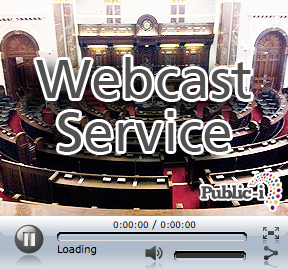Ramadan: Halal meat and Hajj fraud advice
Jacqui Kennedy, Director of Regulation and Enforcement, looks at the risks Muslims may face from unscrupulous businesses as they observe Ramadan.
With Ramadan beginning tomorrow (18 June 2015), this blog contains tips on ensuring halal meat is what it claims to be and how to stay safe if booking a trip to Mecca for the Hajj pilgrimage.
Halal meat
As Muslims fast from sunrise to sunset during Ramadan, eating a hearty meal at night when they can break their fast is vital to ensure they have enough energy to function the next day.
Trading Standards officers have prosecuted businesses – including fast-food takeaways, butchers and wholesalers – which misled customers into thinking the meat products they sold were certified as halal.
Meat that hasn’t been rendered halal by Islamic slaughter, or is contaminated and unfit for human consumption, cannot be considered halal.
People rely on labelling used in shops and butchers to accurately reflect the provenance of the meat they are buying, which is vital to those who follow strict dietary guidelines in line with their religious beliefs.
If you’re unsure whether meat products have been certified, look for a registered logo, but if you’re still in doubt, contact the monitoring organisation to check. There are a number of UK-based monitoring organisations, some of which are listed below:
- Halal Food Authority: http://halalfoodauthority.com
- Halal Authority Board: www.haboard.com
- Halal Monitoring Committee: www.halalhmc.org
- The Muslim Food Board: www.tmfb.net
Trading Standards works closely with the Food Standards Agency to tackle food fraud – so if you have any concerns contact Trading Standards via the Citizen Advice Consumer Helpline on 0345 404 05 06 or email [email protected]
Hajj fraud
During Ramadan, many people begin making plans to undertake a pilgrimage to Mecca for Hajj – the biggest gathering of Muslim people in the world.
All able-bodied Muslims are expected to make the journey at least once in their lifetime, but this is not cheap. Packages have to be booked via specialist travel operators, which can cost between £3,000 and £5,000 per person.
In order to protect themselves when making enquiries about Hajj bookings, consumers are urged to:
- Find out who is providing your Hajj or Umrah package and ask for written confirmation, including the company’s name and address.
- Not all UK travel operators are Ministry Hajj Authorised, so find out who will be taking your passport to obtain the required visa from the Saudi Ministry.
- Operators should display the Air Travel Operators Licence (ATOL) logo and a 4-digit number: to check if this is valid visit the Civil Aviation Authority website, click on ‘Check an ATOL’.
- Ask for full documents and invoices: When you make the booking you should receive an ATOL certificate with the ATOL number.
- If dealing with an operator’s agent, ask for written confirmation and check with the company, who is actually the ATOL holder, that they are supplying the package and handling your passport.
- We would urge great caution if the operator is only willing to take cash payments.
- If booking online, make sure you are dealing with a UK-based business.
If the travel operator cannot provide any of this information, or you have any other concerns before booking, do not hand over any money: contact Trading Standards via the Citizen Advice Consumer Helpline on 0345 404 05 06 or email [email protected]
So be safe in your observance of Ramadan so you can enjoy the Eid celebrations next month!




